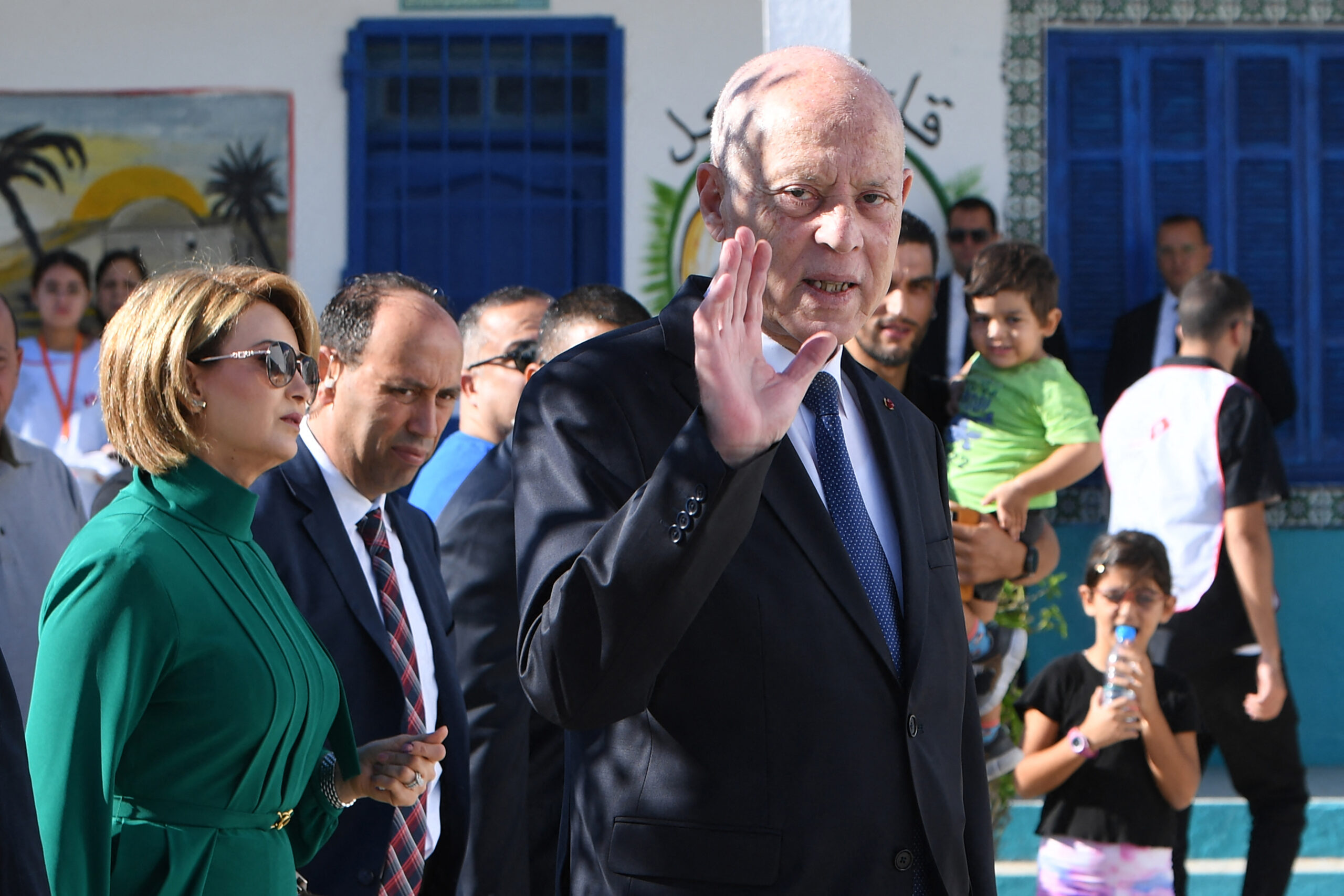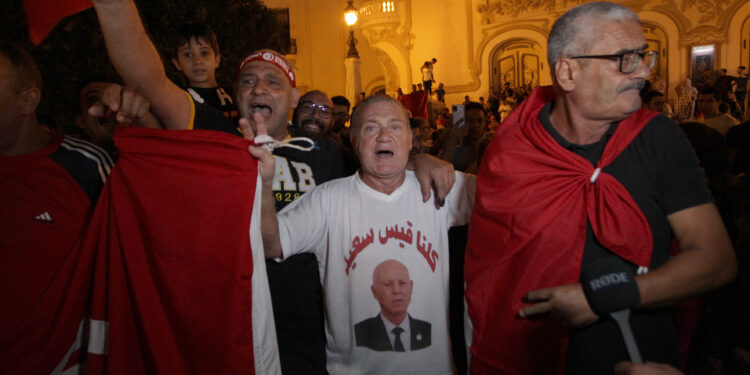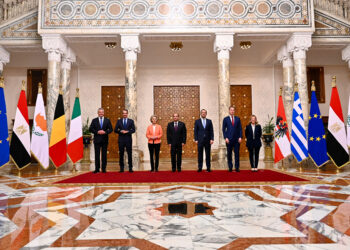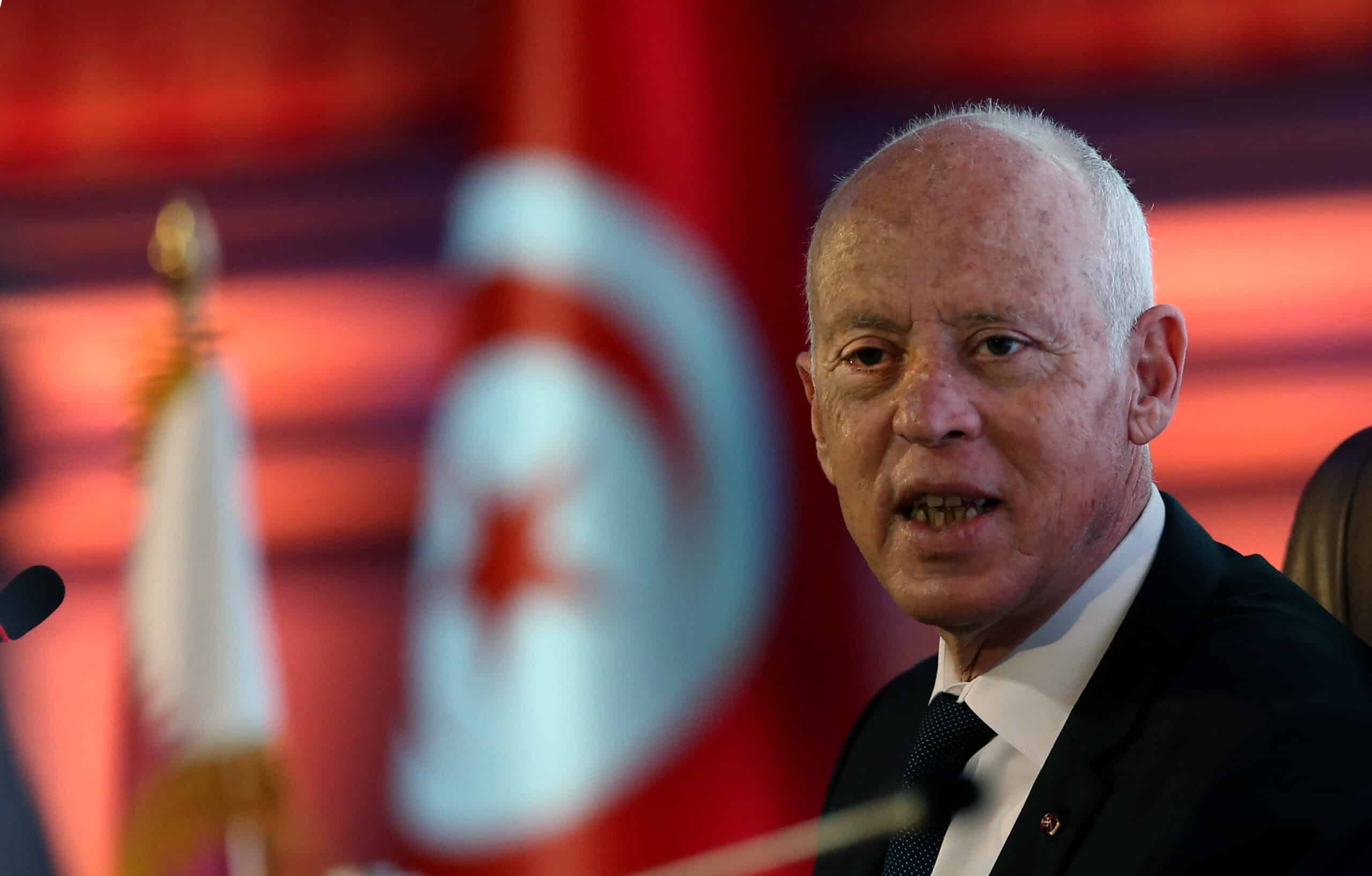Brussels – No surprises in Tunis: according to exit polls, incumbent Kais Saied has overwhelmingly won the presidential election with 89.2 per cent of the vote. Unaccounted for were the other two candidates, who together totalled about 11 per cent. Faced with claims of fraud and abuse of power launched by the opposition and civil society, the European Union— which has strengthened its partnership with the authoritarian president—commented, “We take note, we stand by the Tunisian people.”
A people who largely boycotted the electoral appointment: yesterday (October 6), only 28 per cent of eligible voters showed up at the polls. In 2019, when Saied received his first term, the turnout had been 49 per cent. Some could not reach the polls: the hundreds of political opponents imprisoned by the regime, including Ayachi Zammel, the only real challenger allowed in the presidential election. Zammel, a former Liberal MP and agricultural entrepreneur, has been in prison since last September 3, sentenced to serve thirteen years and eight months on charges of falsifying election forms required for candidacy.
According to exit polls, Zammel won 6.9 per cent of the vote from prison. In third place, with 3.9 per cent, was Zouhair Maghzaoui, a puppet candidate who never questioned Saied’s political project and, indeed, openly supported him during the dismantling of democratic institutions enacted by the president. Such a “Bulgarian” percentage obtained by Saied has not been seen since the days of Ben Ali, who, in 1999 and 2004, was elected with more than 90 per cent of the vote. And against whom, in 2010, erupted the protests that spilt over into the Arab Spring.

The repression enacted by Saied, which has intensified further in an election climate marked by harassment of political opponents, journalists, and human rights NGOs, risks embarrassing Brussels, which, with the Tunisian president, strengthened its ties and signed in the summer of last year a comprehensive and inclusive partnership, guaranteeing Saied more than a billion euros in an effort to stabilize the country hit by a very deep economic crisis and to stop the departure of sub-Saharan migrants from Tunisian shores to Europe.
Interviewed by the international press in Brussels, European Commission Foreign Affairs spokeswoman Nabila Massrali said that the EU “takes note of the position expressed by many Tunisian social and political actors regarding the integrity of the electoral process, particularly with regard to the various measures deemed detrimental to the democratic requirements of credibility and inclusiveness, including the substantial amendment of the electoral law on the eve of the elections.”
Just ten days ago, the Tunis Parliament approved the reform the government wanted, which provides for the transfer of jurisdiction over disputes from the Administrative Court to the ordinary courts. In essence, any appeals by candidates against ISIE decisions will have to be submitted directly to the Court of Appeals and the Supreme Court. Under the new law, preliminary results of presidential elections can only be challenged before the Court of First Instance in Tunis. This change sparked opposition and civil society protests, which rallied outside the Tunis Parliament last September 27.
“Obviously, the EU stands by the Tunisian people and remains attentive to their legitimate needs and aspirations in terms of fundamental freedoms, democracy, and sustainable development, by the EU-Tunisia Association Agreement,” Massrali continued—a statement hinting that the EU will be ready to have its say with the president. But the attempt is vain, as evidenced by the systematic violations of migrant rights perpetrated by Tunisian security forces, about which the EU is shrugging. Friend-partner Saied keeps Brussels in check, terrified of a phantom invasion from the African continent.
English version by the Translation Service of Withub








